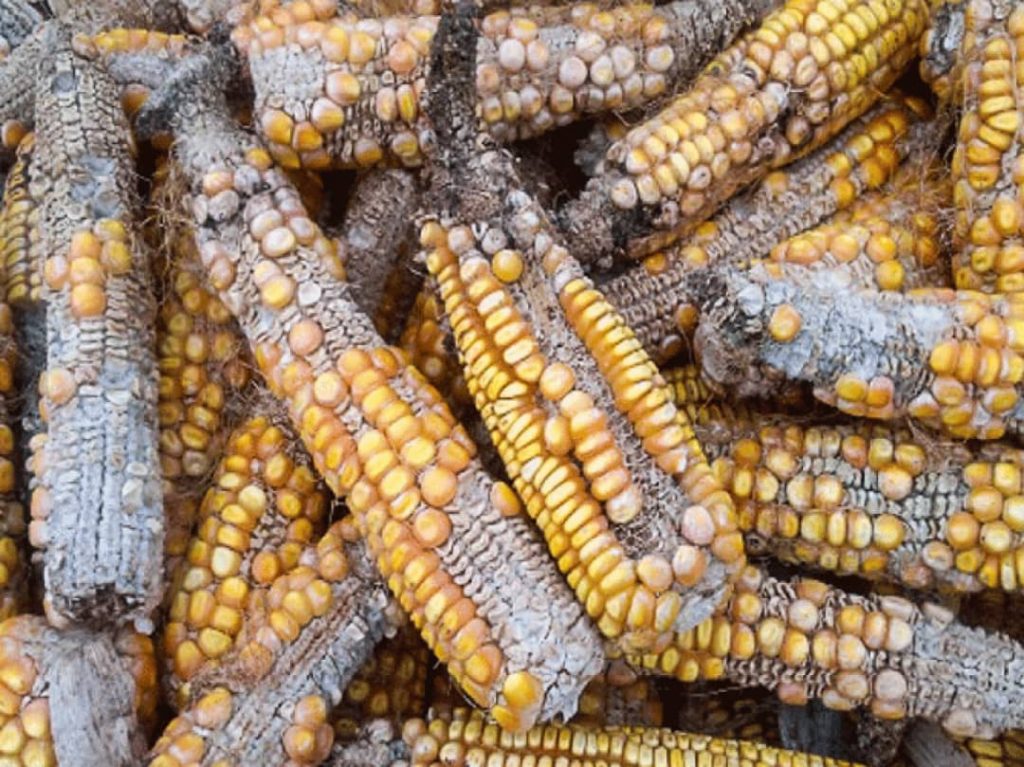The Alliance for a Green Revolution in Africa (AGRA) and the International Institute of Tropical Agriculture (IITA) have trained some Agriculture Extension officers in the Upper East and North East Regions on aflatoxin management.
The two-day training, held in Bolgatanga, capital of the Upper East Region, equipped the over 100 officers and 10 market actors from the Ghana Commodity Exchange with knowledge on the field through harvest to the post-harvest stage of crops that were susceptible to aflatoxin.

Beneficiaries were expected to disseminate and train farmers within the agriculture value chain to ensure that food produced by farmers were safe from aflatoxin.

Dr. Daniel Agbetiameh, a Research Scientist with the IITA who schooled participants on aflatoxin management and control, explained that aflatoxin is a fungi producing poison found in the soil and air which affected various staple foodstuffs and commodities.
He mentioned,hey,sweetcorn, wheat, millet, sorghum, cassava, rice, chili, peppers, cottonseed, peanuts, tree nuts, sesame seeds, sunflower seeds, and various spices as some of the foodstuffs affected by aflatoxin.
It affects both pet and human foods, as well as feedstock for agricultural animals, Dr. Agbetiameh added, and further explained that aflatoxin had diverse effects on human health, and described it as a silent killer.
He said aflatoxin affected the human fetus if a pregnant woman consumed aflatoxin-contaminated food, noting that the poisoned food would be passed onto the unborn child which continued through the period of breastfeeding.
Dr. Agbetiameh noted that it may continue over the cycle of existence if the victim continued to eat aflatoxin-contaminated food.
According to the Research Scientist, aflatoxin could result in stunted growth, delayed development in children, and may damage the liver which could lead to death, adding that even though adults had higher tolerance to exposure, they were also at risk.

“When animals are fed aflatoxin-contaminated food, it could affect their productivity, it affects eggs and meat productions, and increases their mortality rate as they become prone to infections.”
“In terms of export, when one sends commodities with excessive levels of aflatoxins, the commodities are rejected. All countries have set standards for aflatoxin management in food commodities and animal feeds,” Dr. Agbetiameh said.
He said “In Ghana for instance, the acceptable standard is ‘10 packs per billion aflatoxins’ while the European market accepts ‘four packs per billion’ and nothing short of that will be permitted into any European country.”
He said Exporters lost money as a result of trading in aflatoxin contaminated commodities, they were blacklisted and their reputations tarnished, while all other commodities from such countries were critically monitored and kept on high alert.
Dr. Agbetiameh advised the Extension Officers drawn from Districts across the two Regions to ensure the knowledge the acquired from the training was shared among their colleagues, farmers and traders in their respective markets.
Source:mywordfmonline.com/Wisdom Adekurah